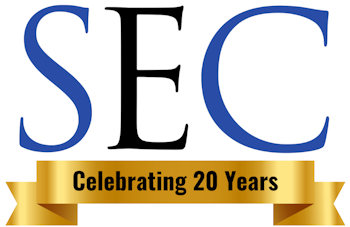Created by George Campbell, Security Executive Council Emeritus Faculty member
Is there a visible commitment to operational excellence within your security vendor’s on-site team? Contract guards represent the security organization to the average visitor and employee at U.S. businesses today, and their competence is both critical and evident in their interactions. Yet companies in competitive markets often struggle to find and retain quality staff to fill shift-based guard force programs, so the market does not adequately drive standards of excellence.
Guard services contracts are typically valued in the millions of dollars annually and often stand out as the single largest line item in a security department’s budget. In my reviews of these contracts, I have found a wide variety of scope and performance-related detail. More detailed contractual requirements and a Service Level Agreement (SLA) can act as financial incentives to excel and set penalties where performance is below a specified standard.
I uniformly see the usual contractual requirements for hours of pre-service and in-service training, background vetting, turnover, invoicing, post assignments and so on. But contracts most often lack qualitative measures of performance. We need to ensure that the vendor team remains focused on service excellence, customer responsiveness, and the proactive mitigation of risk to the customer’s people and operations.
The chart below illustrates an organization that has centered one set of its performance management requirements precisely where it belongs: on the supervisors, who are charged with establishing and maintaining quality standards and who interact with the customer and every assigned officer 24/7.

The seven measures you see here target leadership and program administration. Consider how the following might play out in your organization.
Supervisors consistently lead their teams to excel. Frankly, I don’t know how anyone could push back on this objective. It is the essence of leadership. Is it measurable? Certainly, but you have to work with the vendor to spell out how it would be demonstrated in your unique operational environment. How do you define operational excellence in your company? Why not apply that definition to your contracted security team?
Opportunities for cost reduction are developed and delivered. Why wouldn’t you charge the vendor’s on-site team leaders to seek out opportunities to reduce cost and improve service levels in key areas of operation? If they need to add cost to address your increase in scope, where can these costs be absorbed?
Competence and accuracy in incident reporting is consistently evident. Incident reporting records keep you apprised of risk and responsiveness, and they are also the first things requested in litigation discovery. The supervisor’s competence in maintaining quality and accuracy is mandatory.
100 percent of contractual requirements are met this period. The contract directs compliance on contractual details, so don’t waste space in the SLA just repeating these items. Supervisors need to oversee these elements daily.
Independent review affirms that customers have trust and confidence in the vendor’s team. The key here is “independent review.” The customer-vendor relationship needs to be periodically measured by your own staff or representative to gain reliable feedback on performance. Use incident reports for input.
There are no reportable exceptions to established plans or procedures this period. A flat zero tolerance seems to me to make perfect sense.
Supervisors consistently demonstrate responsive leadership in non-routine, emergency and hazardous situations. This is the basic measure of how supervisors lead, from preparation to execution.
Good supervisors play a critical role in leadership, program administration, response and preparedness. Measurements of their performance should be essential elements of all guard vendor SLAs.

